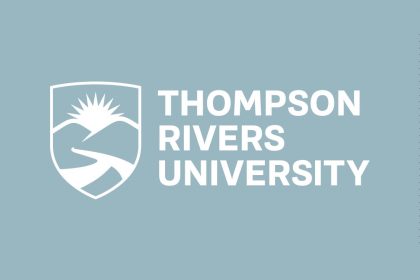In this, the second week of our Ditch the Final Exam series, we would like to introduce you to RoseAnne Timbrell, an assistant professor in the Child, Youth and Family Studies department at the University of the Fraser Valley, who replaced the high-stakes final exam with weekly “exam” questions and allowed students to choose how the information is presented.
By Claire Hay and Helena Prins
RoseAnne Timbrell joined the Child, Youth, and Family Studies department as a sessional instructor in 2012. In 2018 she was hired as an assistant professor. RoseAnne is from the Tl’az’ten Nation. Her passions are building positive academic relationships with students, learning new ways of teaching, and incorporating new ways of assessment. She is a proud grandmother of three and has many nieces and nephews. She values the different types of learners in her classes and often brings in guest speakers to support students in their learning journeys.
Within the first minute of listening to RoseAnne, it is clear she is passionate and compassionate about her work. Courses taught by RoseAnne include families and groups in child and youth care, relational case planning, working with individuals, Indigenous perspectives in child and youth care, and practicum courses. One her main motivators for providing alternative assessments to replace the final exam is to take away anxiety. As a therapist she is very aware of the anxiety students experience whenever there is a midterm or final exam.
She presents students with choice around the presentation of learning, including options for art pieces. Weekly questions to reflect on learning can be answered in a way that works for the students: the artists use art, some prefer oral reflections, and some still prefer the traditional essay format. Students have options. Overall RoseAnne noticed more substance and deeper critical thinking in students’ reflections when not pressured for time. Presenting different options to students results in few, if any, challenges for both instructor and students. The diverse tools RoseAnne uses result in a higher quality of product overall. RoseAnne said she was “gobsmacked” at how students raised the bar during the last course she facilitated. She reminds us that when we use these kinds of techniques, relationships are key.
RoseAnne creates time to connect with students regularly. Students need to trust the process, so having a positive relationship with their instructor is key. She acknowledges that change is hard, and for some students these different styles of assessment can be difficult. Students today are different from students 20 years ago. Our teaching practices should reflect that.
Listen to RoseAnne’s story of how and why she ditched final exams here:
Top tips from Roseanne’s story:
- Weave exam questions into weekly discussion questions, requiring students to respond with theory and reflection in a certain time frame.
- Allowing more time to respond to exam questions results in deeper and higher quality answers.
- Showing compassion and flexibility for students’ online learning activities could inadvertently also reduce online fatigue and marking tasks for faculty.
If you missed last week’s story of how Stefania replaced her final exam with open, offline quizzes that could be completed over 12 hours, and the positive impact it’s had on her students, read and listen here.
Inspired to re-examine your exams? Take the FLO Bootcamp Alternative Assessment Challenge!
Do you have a success story of using alternative assessments to replace the high-stakes final exam in your course? Want to share your story? We invite you to contact Helena Prins, advisor, Learning and Teaching, at BCcampus.
Learn more:
- Effectively Moving Away from Traditional Proctored Exams in First-Year Physics Courses
- Exams: Who are we leaving out?
- On the Front Lines of the Pivot to Online: Measuring the Real Impact of Alternative Assessment in Remote Learning
The feature image for this post (viewable in the BCcampus News section at the bottom of our homepage) is by Andrea Piacquadio from Pexels
